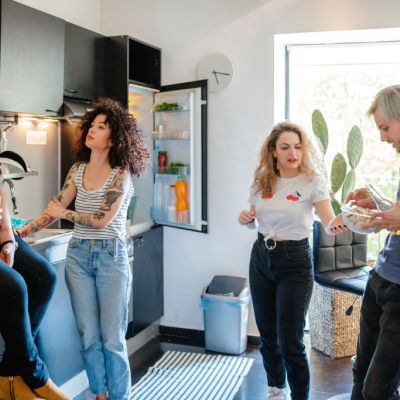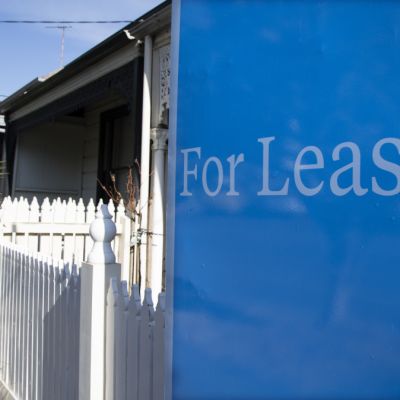The adult kids forced back home in the wake of COVID-19
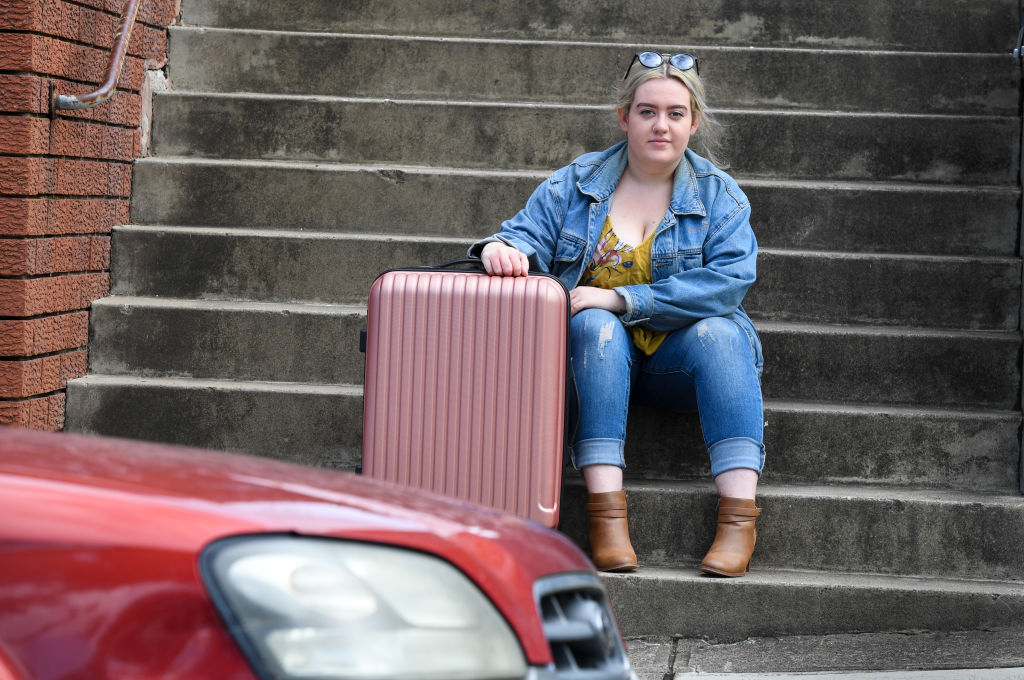
They’re out of work, they can’t afford the rent, they want to be with family – whatever the reason, more of Australia’s adult kids are being forced to move back in with their parents in the wake of the COVID-19 pandemic, experts say.
The hospitality, retail and entertainment industries have been hit hardest by COVID-19 social distancing rules, with live performances cancelled, restaurants and bars closed and, as of last week, big retailers standing down staff indefinitely.
Young people are predominately employed in these sectors, Domain economist Trent Wiltshire says, and they are the ones increasingly finding themselves with no way to pay the rent and bills.
“If young people renting lose their jobs or have their hours cut and they’re looking to save costs, they might move home – if they can. Not everyone has parents who are able to take them in,” Mr Wiltshire says.
He said Domain rental listing numbers had started to increase in the past week which was likely due to Airbnbs being put back onto the rental market, but also potentially because people were increasingly breaking their leases to move back home.
For Melbourne music theatre performer Des Flanagan, it wasn’t a question of breaking a lease, but rather not taking out a new one after coming back from a job in Perth. He was meant to be staying with his parents short-term, until he found a new rental.
“It’s been a happy accident actually,” Mr Flanagan says.
The 25-year-old had a contract lined up to perform in Thrones! The Musical Parody in Melbourne, which has now been cancelled. Another for The Secret Garden, scheduled to be performed in Sydney later this year, hangs in the balance. It has left Mr Flanagan out of work and unable to afford another rental.
“I’ve accepted that this is probably now a long-term solution and I’m very fortunate and grateful for that,” he says.
“I’m really concerned about what production companies’ prospects can be. Everyone’s lost work – and if the demand wasn’t high already, it’s going to be even higher now to get employment.”
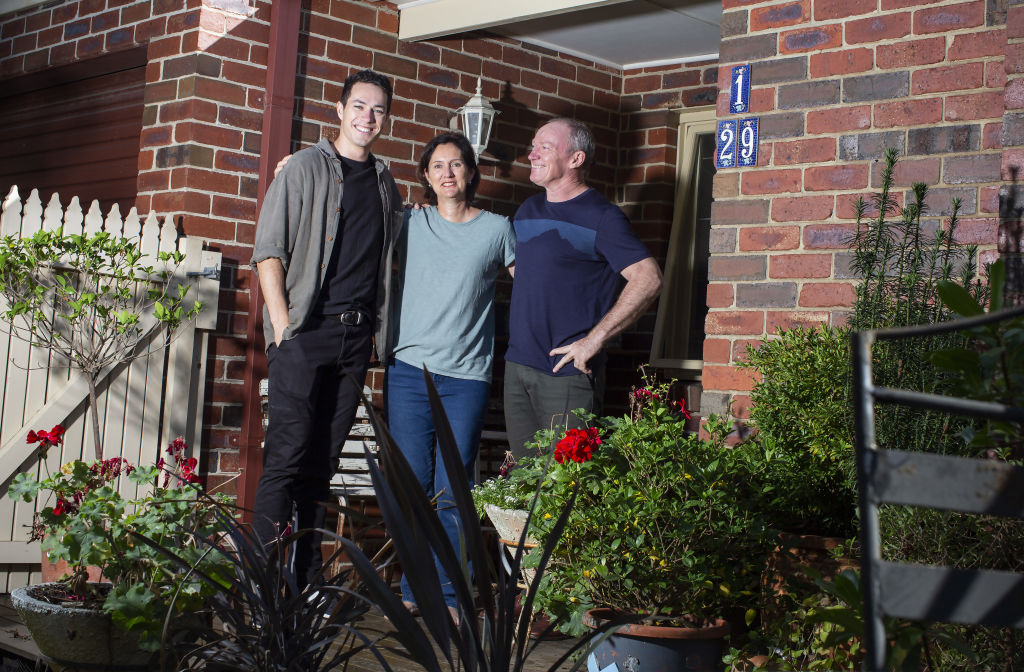
He moved in with parents Maureen and Brendan in early February to their two-bedroom unit in Murrumbeena, where they moved for work four years ago from the family home in Beechworth.
“It’s a tiny house, but we’ll get through. From a financial point of view we’re very fortunate, both Maureen and I are in the education system so we’re guaranteed regular income, so we’re in a really good position to be able support our young bloke Des,” Brendan Flanagan says.
Sydney bar manager and uni student Dani Vella is hoping to keep her Marrickville rental but has still decided to move back to Tamworth and in with her parents for the foreseeable future.
“I do have a brother who lives in Sydney, but he’s in Coogee so we’re quite far from each other – I’m literally very by myself,” the 21-year-old says. “It is a mental health thing as well, being isolated in a house for an unknown period of time. I just think since this is so unfamiliar for all of us, I really do need that support of Mum and Dad.”
She was stood down from her job a week and a half ago, and all of her classes have moved online. She now plans to use savings and whatever money she can eventually get from Centrelink to pay her rent, with the hopes she can move back to Sydney later this year.
“My employment will be there once the pub reopens. I’m getting the little bit of annual leave that I’ve accrued, but we don’t get paid leave for this situation, nor have I been able to access Centrelink yet due to wait times,” Ms Vella says.
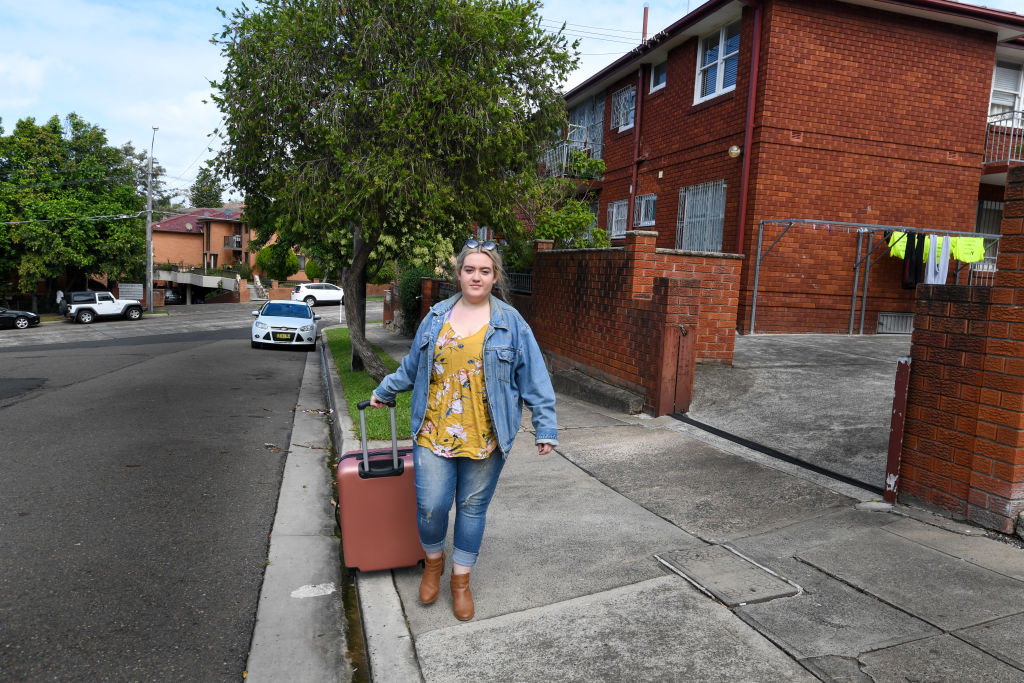
She says she’s fortunate her parents are able to have her during the pandemic, and doesn’t rule out needing them for further financial assistance in the future.
“If I can’t gain access to Centrelink, then Mum and Dad will have to definitely help with my rent. The Jobseeker payment can’t be accessed unless you’re 22 or above, I haven’t been able to get Youth Allowance in the past because I’ve been working,” she says. “I wouldn’t be in a good place without the support of my parents.”
Young people are already increasingly living at home for longer. The 2019 Housing, Income and Labour Dynamics Survey shows 56.4 and 53.9 per cent of 18 to 29-year-old men and women respectively lived with their parents in 2017 – compared with 47.2 and 36.5 per cent in 2001.
Demographer Simon Kuestenmacher says young people are already likely to both live at home for longer and move back into the family home during a personal crisis – but the impacts of them doing so en masse could be damaging for the property market.
“If we assume that the lockdown takes longer – half a year or more – then we do see property prices falling, simply because all those shared houses are emptying out,” Mr Kuestenmacher says.
He says while there could be both economic and social consequences, families moving back in together had the potential to make the most of the situation, forming stronger bonds and allowing adult children to help look after the well-being of their parents.
“In a crisis, people want to come together,” Mr Kuestenmacher says. “It could then mean that, ideally, the young, healthy kids could actually do the supply runs. You therefore enable your parents to have a safer living environment – that’s if you go about it very pragmatically.”
Mr Wiltshire says parents, who may themselves be out of work or experiencing loss of investment income during this time, could see household costs rise if they welcome their adult children back home.
Though, he says, the situation could also be a positive one, with adult kids potentially being able to contribute to household expenses as they find their feet, and the possibility of a cooler rental market allowing more people to find a property.
“The more people that do this, it creates less pressure on the rental market,” he says. “What that means is vacancy rates rise and rents will likely fall, so it actually might become more attractive for some people to rent,” Mr Wiltshire says.
He said the growing trend toward moving home may change the overall household structure we’ve become used to in Australia – particularly if the economic fallout from COVID-19 was ongoing.
“In general we know that average household size has fallen over the years as society has become wealthier, people want to live on their own. That might reverse a little bit if there’s an extended downturn.”
For some adult kids, their move home was not strictly financially motivated, but more about wanting to isolate and potentially lock down with family, rather than on their own or in a sharehouse.
Melbourne retail merchandise planner Krystie Gunn made the decision to move back to her parents’ Shepparton home about two weeks ago, as her partner, fly-in, fly-out mining worker Kenton Mrsich, would be away in Western Australia for at least the next two months, and she thought it better to isolate with family.
“We’re used to doing four weeks, but if he stays in WA for his two weeks off to avoid flying – minimum I think it will be 10 weeks,” Ms Gunn says.
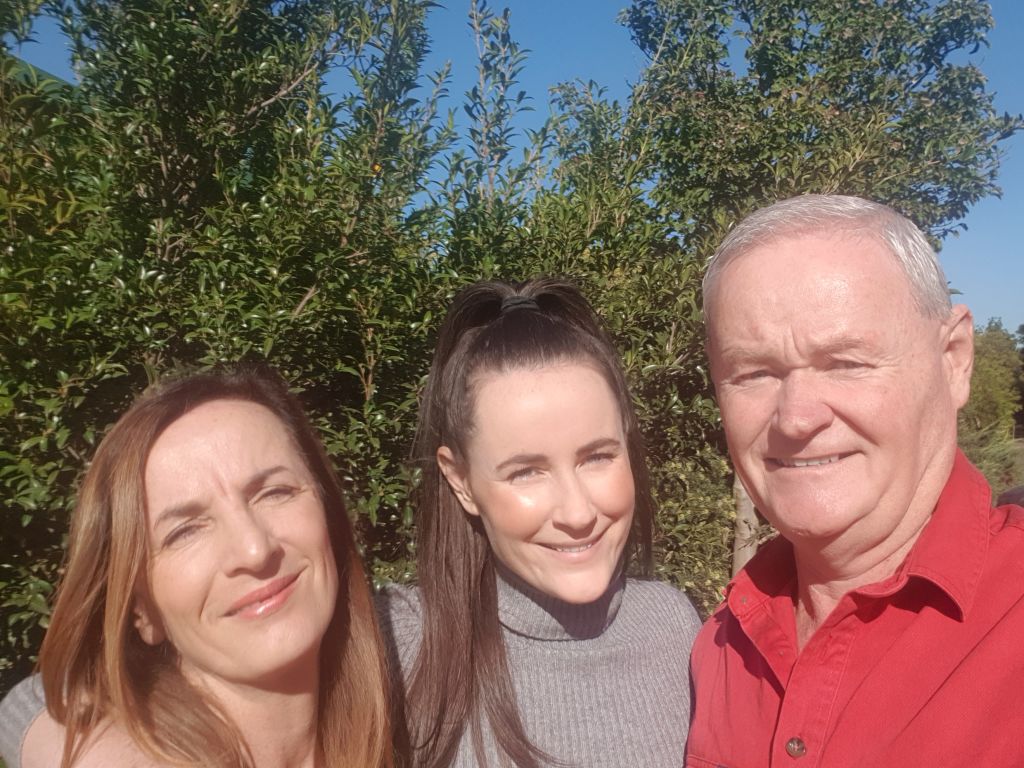
The 28-year-old is also concerned about her health – as an asthmatic, contracting COVID-19 could have dire consequences for her.
“As soon as I get a cold, my lung capacity goes to about 60 per cent, so given this is a respiratory virus, I was already a little bit wary. And then given I live in Southbank, so it’s quite high-density and then I take public transport to work – I was getting quite nervous.”
Ms Gunn’s plan was to work remotely from her parents’ home, and get back to the office and her Southbank rental once things started to return to normal. However, as of Thursday, she became one of nearly 18,000 retail sector workers to lose their jobs or be stood down without pay.
She still hopes to keep her rental as it’s “home” to her and Mr Mrsich, but is unsure if that will be possible.
We recommend
We thought you might like
States
Capital Cities
Capital Cities - Rentals
Popular Areas
Allhomes
More
